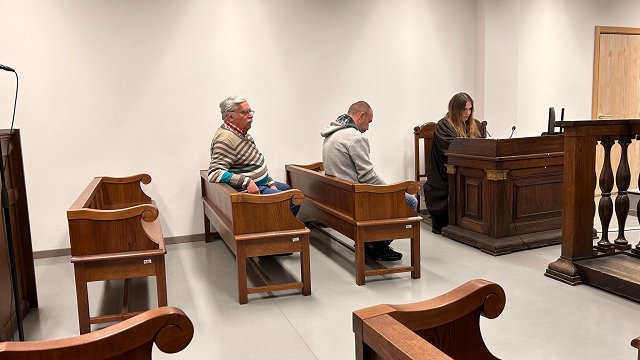He stressed that both on Tuesday and Wednesday, when bomb threat letters had been sent out, the real risk level was low. An active investigation is currently underway, criminal proceedings have been initiated, and the police attribute the sending of these letters to similar events, now more than a year ago, and it is known that this person or group of persons was operating not only in Latvia, but also in Poland and the USA.
This is why international cooperation mechanisms have been put in place in advance, the police are waiting for news from Europol on whether this source has been spotted elsewhere in Europe at the moment. Ruks said municipal authorities and malls previously received such threats.
He stressed that this threat letter act was deliberately targeted at children, causing alarm among parents, staff at educational institutions, and local governments. Such a massive attack directly on educational institutions has occurred for the first time.
Ruks noted that this person or group of persons has certain knowledge in the field of information technology (IT), as various IT solutions have been used. The police chief said this type of attack was not easy and quick to detect, “however, there are tools to detect them and they are fully available to us, both to ourselves and to collaborators at Europol and other institutions and services.”
He said it was known now that the source of the threat letters “comes from Latvia's unfriendly countries, which may hinder the rapid resolution of this series of alleged repeated attacks.”
State Security Service Chief Normunds Mežviets confirmed the service was ready to support police in their efforts to identify the person or group of individuals. Mežviets emphasized that the terrorism threat level in Latvia has not increased, the information at the service's disposal does not indicate that any attacks are possible, nor has such information been received from other cooperation services, or international organizations.
The purpose of the letters, on the other hand, is to sow panic, and if the state and the public react with great excitement and panic, then potentially letter-senders can achieve their goals. He also added that such provocations were not unique, were regularly confronted by other NATO countries, and could not be ruled out in the future, either.
Ruks also agreed that letter-senders wanted to destabilize the situation in the country, causing disruption to the work of institutions, and disbelief in services.
Schools acted differently after the first threat letters, and school management had not been clear on whether an evacuation was necessary. Edīte Kanaviņa, head of the Education Department at the Ministry of Education and Science, said that from now on everyone will act on uniform algorithms so that the learning process can safely continue unless the responsible services advise otherwise.
Ināra Dundure, counselor of the Latvian Association of Local Governments for Education and Culture, said that previously schools acted in accordance with the law, which determines the responsibility of school management to make decisions in such situations. Local government education authorities and education boards met via video conference with police representatives on Wednesday to raise awareness of what to do, how to provide information to police, and police will then determine the order to follow.
Police chief Ruks added that if there are reasonable suspicions – some physical object or parcel has been found, specialists should be called, and police instructions should be followed.



























